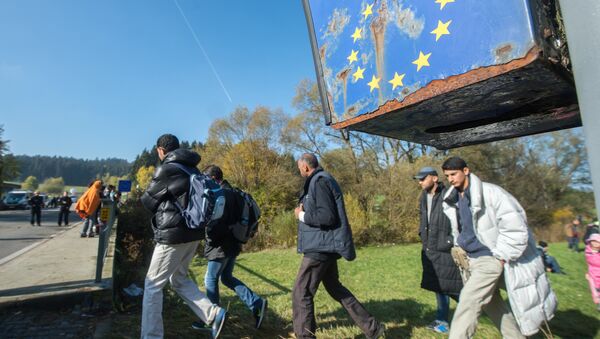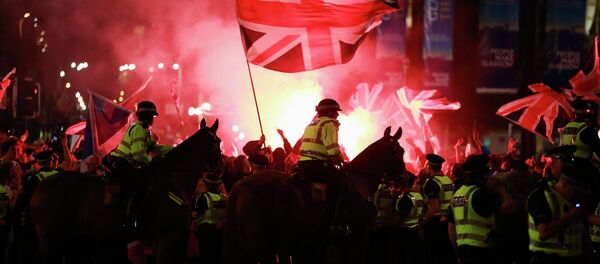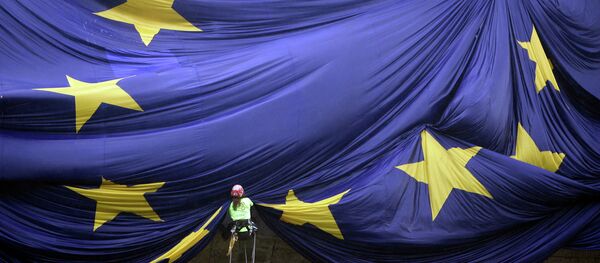In her article, published by the online foreign affairs magazine New Eastern Outlook, Stryker recalls that while "Europe is the birthplace of most of the ideas that gave Western Civilization its edge over the rest of the world," geographically, it is only "a peninsula of Eurasia, and Africa's backyard."
"Add the fact that Europe comprises a minimum of forty nationalities and languages, crammed into a space that is less than one tenth that of Eurasia ([which has] perhaps the same number of major nationalities), and it's easy to see why it has historically been the scene of endless internecine squabbles, and even major wars."
Today, Stryker recalls, the conflict between the Christian (and post-modern, post-Christian consumerist) societies of Europe, and the cultural 'other' from the underdeveloped Muslim world, rooted in the wars, coups and revolutions of the post-WWII period, is starting to bear its terrible fruit, with "the entire [continent] currently being assaulted by waves of desperate Muslim refugees."
"Fifty thousand Syrians being held in Greek refugee camps are about to be sent back to Turkey, many of them highly educated. After processing, most will be allowed into Europe legally, joining second-generation Muslims who are more educated than their parents, but feeling at home and fully accepted in neither world, [and thus at] risk [of] being recruited by ISIS."
'Phony War' With Russia Risks Becoming Hot
At the same time, the analyst warns, over 75 years after the original 'phony war', a period at the start of World War II when no major military operations were carried out on the Western front following the collapse of Poland, "Europe is experiencing another phony war," one "in which Washington scolds Western Europeans for shirking their frontline role in its standoff with Russia."
What the anti-Russian media hysteria misses, Stryker suggests, is Europe's real existential problem. Namely, the question is: "How would spending more on NATO arms help solve Europe's real problem, which is refugees from US-led wars?"
Nearly two decades ago, the analyst recalls, liberal interventionist scholar Zbignieuw Brzezinski outlined a plan "to divide Russia into smaller, easier to control entities" in his 1997 book The Grand Chessboard.
This "led, in 2009, to an obedient Europe creating the Eastern Partnership, designed to draw former Soviet republics away from Russia. That having largely failed, in 2014, more drastic steps were taken, in the form of a 'popular' coup against Ukraine's president, backed by militias inspired by World War II fascists."
Unfortunately, the analyst warns, the most troubling question today, as tensions between Moscow and NATO continue to grow, and "Russia's air force taunts the US fleet just outside its territorial waters in the Baltic Sea," is "what will stop this phony war from becoming real?"



